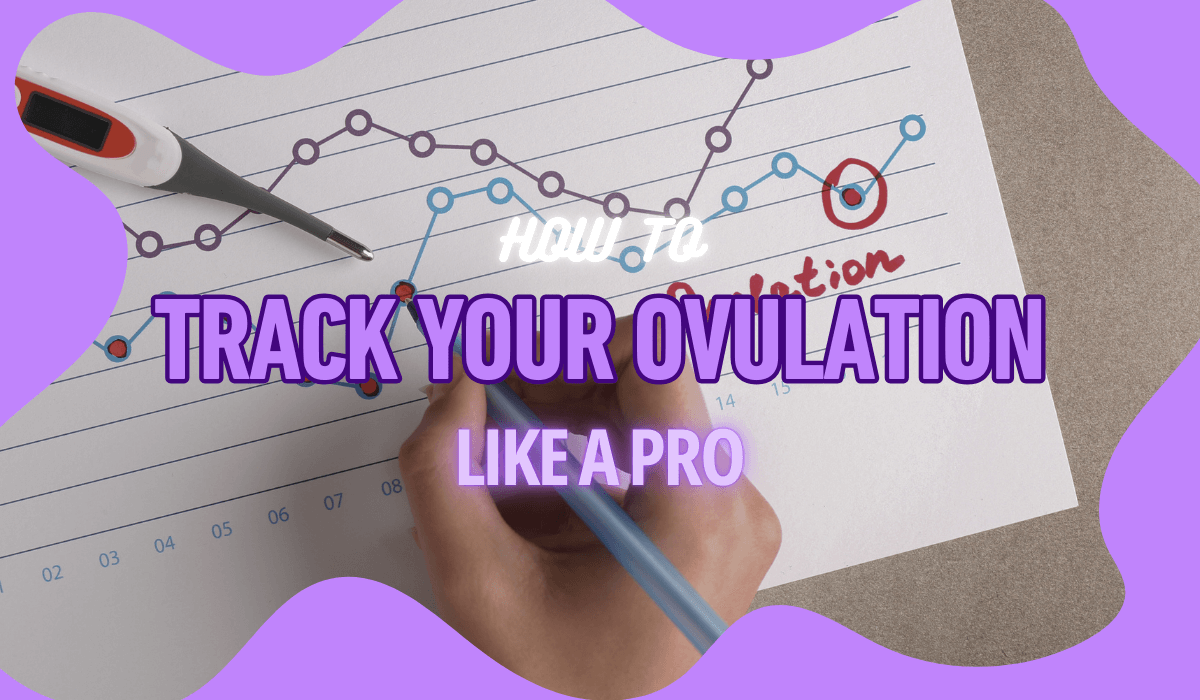"Oh, You Mean I Was Supposed to Track This?"
When my partner and I first started trying to conceive, I had zero idea about ovulation tracking. We just, you know… did the thing whenever we felt like it and assumed nature would handle the rest.
Months passed. Nothing happened.
That’s when I started paying more attention. And soon, I noticed something—I could actually feel my ovulation. Like, really feel it. Sharp pains on one side, like my ovary was personally yelling at me, “Hey! It’s go time!”
Then came the urination marathon—peeing on LH test strips every day like it was my second job, trying to catch that peak. When we moved on to IVF, tracking my cycle became even more intense. There was no more guessing—I had to pinpoint ovulation with military precision.
So, if you’re trying to conceive and wondering how to track your ovulation like a pro, let me save you hours of Googling. Here’s everything you need to know.
Why Ovulation Tracking Matters
Ovulation isn’t just “somewhere in the middle of your cycle”—it’s the window where pregnancy can happen. If you don’t ovulate, no egg = no baby. And since sperm can live for up to 5 days inside you, but the egg only survives for 12-24 hours, timing is everything.
Best Ways to Track Ovulation (Ranked by Effectiveness & Sanity Levels)
1. Ovulation Predictor Kits (OPKs) – The Pee-on-a-Stick Method
💡 What it is: Urine tests that detect the LH surge, which happens 12-36 hours before ovulation.
✔️ Pros:
- Easy to use.
- Gives you a clear "You're ovulating soon!" warning.
✖️ Cons:
- Can be tricky to interpret if lines are faint.
- Doesn’t confirm that you actually ovulated—just that your body tried to.
🙋♀️ Best for: Anyone who wants clearer timing without overcomplicating things.
📝 Pro Tip: Test twice a day (morning & afternoon) when you're getting close to ovulation to avoid missing your peak!
2. Basal Body Temperature (BBT) – The "Data Nerd" Method
💡 What it is: Taking your temperature first thing every morning to spot a slight rise (which confirms ovulation happened).
✔️ Pros:
- Cheap & natural.
- Confirms that ovulation actually happened.
✖️ Cons:
- Useless if your sleep schedule is inconsistent.
- Doesn’t predict ovulation—it only confirms it after it happens.
🙋♀️ Best for: Those who love charts, data, and morning routines.
3. Cervical Mucus Tracking – The "Getting Personal" Method
💡 What it is: Checking vaginal discharge to see if it’s in the fertile, egg-white stage (which means ovulation is near).
✔️ Pros:
- Free and natural.
- Your body’s actual sign that you’re fertile.
✖️ Cons:
- Can be tricky to interpret at first.
🙋♀️ Best for: Those who don’t mind getting a little hands-on with tracking.
4. Ovulation Pain – The “Listen to Your Body” Method
💡 What it is: Some women (like me!) actually feel ovulation as sharp pain on one side.
✔️ Pros:
- No pee sticks, no tracking—just your body’s natural signal.
✖️ Cons:
- Not always accurate, and it doesn’t tell you exactly when the egg is released.
🙋♀️ Best for: Those who have consistent ovulation pain and recognize the pattern.
How to Use This Info to Get Pregnant Faster
1️⃣ Start tracking early – Begin using OPKs a few days before expected ovulation so you don’t miss your LH surge.
2️⃣ Have sex BEFORE ovulation – Since sperm can live up to 5 days, start trying a couple of days before you ovulate!
3️⃣ Don’t rely on just one method – OPKs + cervical mucus tracking = a solid combo.
4️⃣ Stay consistent – The more cycles you track, the better you’ll understand your body.
Final Thoughts
Ovulation tracking can feel overwhelming at first, but once you get the hang of it, it’s like having a secret roadmap to your most fertile days. Whether you’re just starting out or you’ve been deep in the TTC trenches for a while, knowing when you ovulate gives you control over your fertility journey.
💬 Have you tried ovulation tracking? What method worked best for you? Drop a comment below!


